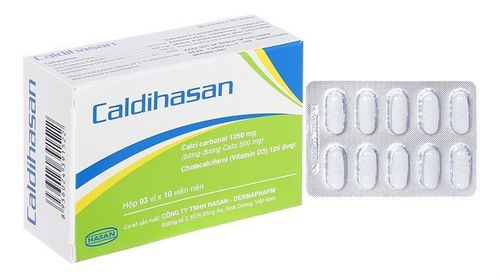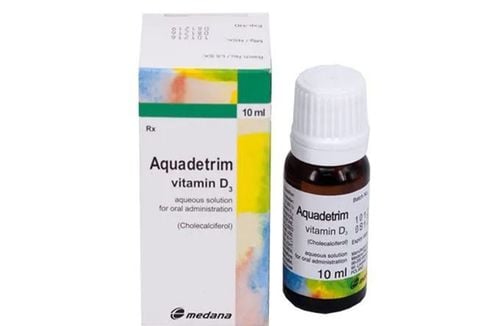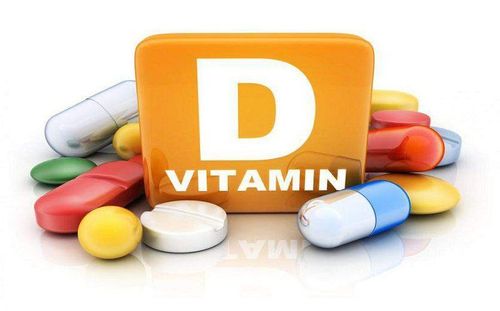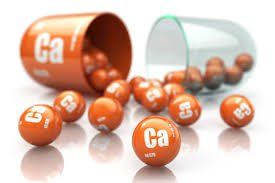Vitamin D is very important, but it is found in a limited number of foods and can be difficult to get enough through the diet. Vitamin D is one of the most popular nutritional supplements. However, many factors can affect its effectiveness, including timing and daily dosage. So what is the best time to take vitamin D to maximize its absorption and effectiveness?
1. Why is Vitamin D supplementation necessary?
Vitamin D is different from other vitamins because it is considered a hormone and is produced when the skin is exposed to sunlight. Adequate vitamin D is essential for health, as it plays a role in immune function, bone health, cancer prevention, and many other health issues.
However, vitamin D is found in a limited number of foods. Therefore, meeting the body’s vitamin D needs can become difficult if we do not get regular sun exposure. Older adults, people with dark skin, overweight individuals, or people living in areas with limited sunlight are at a higher risk of vitamin D deficiency.
About 42% of adults in the United States are deficient in this key vitamin. Taking supplements is an easy and effective way to meet vitamin D needs, especially for those at higher risk of deficiency.
2. Is Vitamin D better absorbed with meals?
Vitamin D is a fat-soluble vitamin, which means it doesn’t dissolve in water and is best absorbed into blood when combined with foods rich in fat. For this reason, it is recommended to take vitamin D with meals to enhance absorption.

According to a study involving 17 people, taking vitamin D with their main meal of the day increased blood levels of vitamin D by about 50% after 2 months. In another study with 50 older adults, consuming vitamin D with a high-fat meal resulted in a 32% increase in blood levels of vitamin D after 12 hours compared to a meal without fat. Butter, nuts, seeds, full-fat dairy products, and eggs are sources of fat that help enhance vitamin D absorption.
3. Combining Vitamin D supplementation in morning
Many people prefer taking supplements like vitamin D in the morning. It is not only convenient but also easier to remember. This is especially true if you take multiple supplements, as it can be challenging to remember to take all pills throughout the day.
For this reason, it’s best to make it a habit to take vitamin D with a healthy breakfast. Using a pillbox, setting an alarm or keeping your supplements near the dining table are simple ways to remind yourself to take vitamin D
4. Can taking vitamin D late in the day affect sleep?
Research has shown a connectionbetween vitamin D levels and sleep quality. Some studies have indicated that low blood levels of vitamin D are associated with higher risk of sleep disorders, poorer sleep efficiency and reduced sleep duration.

On the other hand, a small study suggests that higher blood levels of vitamin D may be associated with lower melatonin levels which is a hormone responsible for regulating the sleep-wake cycle in individuals with multiple sclerosis.
Certain recommendations indicate that taking vitamin D in the evening could negatively affect sleep quality due to its potential interference with melatonin production. However, scientific research to determine whether taking vitamin D in the evening can affect sleep is still lacking clear evidence.
5. What is the ideal time to take vitamin D?
Taking vitamin D with a meal can enhance absorption and increase blood levels more effectively. However, there is no evidence to confirm that taking vitamin D in the evening or in the morning is more effective. The most important thing is to adjust vitamin D dosage and intake habits, and to do so consistently to ensure maximum effectiveness.
Try taking it with breakfast or a light snack before bedtime, as long as it doesn’t interfere with your sleep. You should focus on finding what suits you best and make it a habit to ensure you’re getting enough vitamin D
Using supplements can be an effective way to increase blood levels of vitamin D and enhance health. Taking vitamin D with food can improve its effectiveness, as it is fat-soluble. Although the optimal timing has not been clearly determined yet, as more scientific data is needed to confirm this. You can adjust vitamin D intake to fit your routine and lifestyle.
To maintain overall health, you should have a general health checkup to understand whether your body is lacking or has an excess of any nutrients, and whether you are at risk of any health conditions. This will allow you to make necessary adjustments to your daily diet and seek early medical intervention if needed.
To arrange an appointment, please call HOTLINE or make your reservation directly HERE. You may also download the MyVinmec app to schedule appointments faster and manage your reservations more conveniently.













